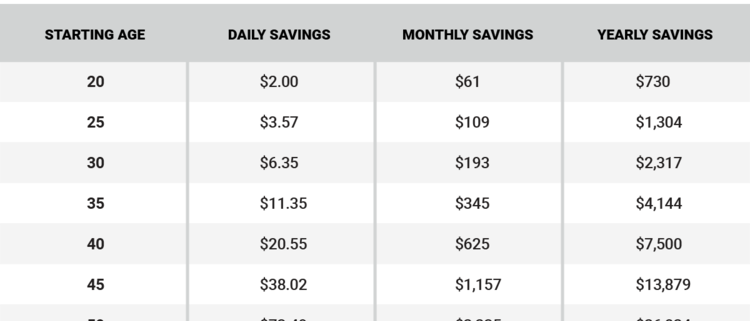South Carolina State Taxes
There’s no question that South Carolina is a desirable destination for retirees and families looking to relocate, with beautiful beaches along the coast giving way to the lush forests and mountains of the upstate region, offering something for every taste.
But how affordable is it to relocate to the Palmetto State? State tax codes play a major role in the financial picture for those planning a move. Fortunately, South Carolina’s variable income tax rates, low property taxes, and lack of inheritance tax make it an appealing choice for many households.
Key Takeaways
- South Carolina is generally regarded as a low-tax state, consistently ranking above average when assessing tax affordability.
- South Carolina’s lack of an estate tax and low property taxes make it an appealing choice for retirees looking to relocate.
- Income tax rates in South Carolina vary by income and are typically in the middle of the pack in terms of competitiveness with other states.
South Carolina state income tax
South Carolina employs a graduated structure for its state income tax with rates spanning from 0 percent to 6.5 percent—a slight reduction from the previous top rate of 7 percent. To account for inflation, the state adjusts these tax brackets each year and anticipates further rate reductions in future years.
The breakdown of these tax brackets is as follows:
- $0—$3,200 at 0 percent
- $3,201—$16,040 at 3 percent
- Above $16,040 at 6.5 percent
Sales Tax in South Carolina
South Carolina has a basic 6 percent sales tax on most items, but local taxes can increase it to a maximum of 9 percent. The state does not charge this base rate on essential goods like groceries, making everyday expenses more affordable. Most other goods like prepared foods, hotel stays and certain services are taxed at the total rate of both state and local taxes.
For big-ticket items like cars, South Carolina applies its regular sales tax rates but places a ceiling on the sales tax at $500 for each vehicle sold. This approach aims to keep taxes fair for larger purchases, balancing the need for public funding with the need to keep living costs reasonable.
South Carolina Property Tax
South Carolina’s property tax system encompasses two main categories:
- Real Estate Tax: This tax is applied to homes, land and buildings with rates varying by county. Owner-occupied residences benefit from a reduced rate of 4 percent on assessed value, compared to higher rates for non-owner occupied properties.
- Personal Property Tax: This targets motor vehicles, boats and airplanes, taxing them based on fair market value.
Additionally, the state offers exemptions aimed at lessening the burden for certain groups, including seniors over the age of 65, disabled individuals and veterans. The state also aims to provide favorable conditions for agricultural lands actively used in farming. These efforts are designed to balance fiscal responsibility with support for South Carolina residents’ varied needs.
South Carolina Estate Tax
South Carolina does not levy an estate tax, following the federal government’s elimination of its death tax credit program in 2005. This means residents face no state-level estate taxes when transferring or inheriting property. The lack of an estate tax simplifies inheritance matters, allowing South Carolinians to plan their estates without worrying about additional state taxes on top of federal obligations.
This policy reflects South Carolina’s commitment to creating a taxpayer-friendly environment, easing financial and legal processes for residents dealing with inheritances. By removing this layer of taxation, the state aims to promote economic stability and growth by reducing fiscal burdens during inheritance transitions.
South Carolina Retirement Tax
South Carolina offers a tax-friendly environment for retirees, highlighted by:
- Social Security Benefits: This income is completely exempt from state taxes.
- No Estate or Inheritance Tax: The lack of a state inheritance tax boosts the state’s appeal by allowing retirees to pass on their financial legacy without additional taxation.
These policies, taken together, create an appealing environment for seniors looking to enjoy their retirement years with minimal tax burdens.
Bottom Line
South Carolina is typically considered one of the most tax-friendly states, combining low property tax rates with the abolition of the state’s inheritance tax to create a tax climate especially appealing to retirees and families nearing the end of their working careers.
To make sure you’re not overpaying on taxes, it’s smart to consult with a professional. A financial advisor can answer your tax questions and help ensure you pay only what’s necessary. At Horizons Wealth Management, we help you navigate your financial future with expertise behind you.
South Carolina Tax FAQs
What income is not taxable in South Carolina?
South Carolina does not levy state taxes on a variety of income sources, most notably on Social Security income, inheritances, military retirement payments and permanent disability retirements, regardless of age.
Is South Carolina a good tax state for retirees?
While South Carolina is an above-average state for tax competitiveness overall, it is especially appealing to retirees due to its lack of state taxes on Social Security income and its low property tax rates on real estate and vehicles.
Is South Carolina or North Carolina better for taxes?
Every situation is different, but overall, South Carolina would seem to be a more favorable tax state than North Carolina for many households. For lower-income families, South Carolina’s graduated income tax rate is preferable to North Carolina’s flat tax rate. Higher-income households and property owners will also prefer the lower tax rates on these major expenses in South Carolina when compared to their neighbors to the north.










